Infectious Diseases Fellowship
The Infectious Diseases Fellowship Program of the Northwestern University Feinberg School of Medicine is designed to prepare trainees for a career in academic medicine through clinical practice and research training. The two-year program qualifies trainees for ABIM subspecialty boards in Infectious Diseases. The first year of the program is devoted to clinical training. The subsequent year is devoted to research. Trainees are encouraged to take advantage of a range of research opportunities in their area of interest.
About the Fellowship
Education
Microbiology Bootcamp
First-year fellows participate in a four-week microbiology and infectious disease bootcamp, split into two-week sessions in July and January. The bootcamp combines didactic learning with hands-on training in the clinical microbiology lab, covering bacteriology, virology, mycology, parasitology and antimicrobial therapy principles. Fellows rotate through diagnostic benches, gaining practical experience diagnosing infectious diseases.
Seminars & Conferences
Weekly lectures on core infectious disease topics are presented by faculty and fellows. Monthly journal clubs and research forums showcase ongoing studies. An informal case conference, held twice a month, allows fellows and faculty to discuss complex cases. The Division of Infectious Diseases also holds joint case conferences with Ann & Robert H. Lurie Children’s Hospital of Chicago.
Key Conferences & Rounds
- Infectious Disease Case Conference: Consult teams present unique or challenging cases from inpatient and outpatient settings to encourage discussion.
- Joint NMH/Lurie Children’s Hospital Case Conference: Cases are presented as “unknowns” by fellows and discussed by attendings. First-year fellows present once per month.
- Journal Club: Fellows and faculty discuss topical or controversial journal articles.
- Research Forum: Fellows and faculty present research topics.
- Clinical Skills Lecture Series: Focuses on skills outside of core infectious diseases, such as test interpretation and patient communication.
- Pathology and Microbiology Rounds: Fellows review pathology slides and microbiology results to deepen their understanding of disease pathology and diagnostics.
Specialty Seminars
- Clinical Microbiology Seminar: Combines lectures, bench work and case studies. Topics include transplant-related infections, rational selection of antimicrobials and antimicrobial pharmacokinetics.
- Lecture Modules: Cover areas like antimicrobial resistance, HIV treatment and sexually transmitted diseases.
Clinical Experience
Inpatient Consult Service
Fellows rotate through three inpatient consult services:
-
Medical Infectious Diseases Consult Service: Manages infectious disease consultations for general medicine, subspecialties, neurology, dermatology, psychiatry and medical ICU patients. The team includes an attending physician and a fellow, with potential participation from residents and medical students. Provides approximately 120 consults per month.
-
Surgical Infectious Diseases Consult Service: Oversees patients in general and specialty surgery, surgical ICUs, hematology/oncology, obstetrics/gynecology and rehabilitation with pre- and post-operative infectious disease complications. The team setup is similar to the Medical Consult Service and handles around 90 consults monthly.
-
Transplant Infectious Diseases Consult Service: Provides care for solid organ, bone marrow and stem cell transplant recipients with infectious disease issues. This multidisciplinary team, comprising an attending physician and a fellow, handles approximately 120 consults each month.
Outpatient Experiences
-
Infectious Diseases Outpatient Clinic: Offers follow-up care for patients seen on the inpatient consult services and those referred for infectious disease management. Provides primary care and consultative services for HIV, travel-related illnesses and general infectious diseases, with approximately 10,500 encounters annually.
-
Sexually Transmitted Disease Clinic: Offers walk-in care for sexually transmitted diseases, including evaluation, treatment, Hepatitis A and B vaccinations, HIV counseling and testing and safe sex education. Manages about 320 patient encounters each year.
-
Travel Medicine and Immunization Clinic: Prepares international travelers with immunizations, malaria prophylaxis and advice on infectious disease prevention.
Research
First Year
During the first year, fellows explore research opportunities across Northwestern University to identify suitable mentors and projects. Research Forums, presented by faculty in the Division of Infectious Diseases, showcase ongoing projects and potential areas of study. Kelly Bachta, MD, PhD, serves as the director of fellowship research training and, along with an individual research committee, mentors each fellow throughout their training.
Second & Third Years
The second and optional third years of fellowship are dedicated to mentored research in basic, translational, or clinical science, selected by the fellow and approved by the Infectious Diseases Fellowship Committee. The objective is to build the research skills needed for a successful academic career.
The Division of Infectious Diseases was awarded a prestigious NIH T32 training grant, along with matching funds from the Department of Medicine, to support two of the three research positions in the second and optional third years. This grant also covers tuition for the two-year Master of Science in Clinical Investigation degree. Additionally, the Design Industries Foundation Fighting AIDS (DIFFA) funds one fellow annually, designated as the DIFFA Chicago Fellow, focusing on HIV/AIDS care or research. Other departmental and university grants support eligible fellows in areas like microbiology-immunology and transplantation.
Research Project Examples
- Mechanisms of Acinetobacter baumannii virulence in pneumonia and bloodstream infections
- Hepatitis C co-infection's impact on HIV progression
- Quantiferon testing performance in solid-organ transplant recipients
- Genomic basis of strain variations in Pseudomonas aeruginosa virulence
- Control strategies for multi-drug resistant Acinetobacter baumannii
- Molecular epidemiology of HIV in Black men who have sex with men
- Postpartum retention strategies in HIV care
- Clinical trial evaluation of two-drug vs. three-drug antiretroviral therapy for HIV
- Virulence and relapse features of Mycobacterium avium complex species
- Genetic variation in the rtxA1 gene of Vibrio vulnificus
- New genes or mutations associated with antimicrobial resistance in CRE isolates
- Substance abuse and cardiovascular risk in HIV-infected men
- Structural brain abnormalities in early HIV infection
- Outbreak prevention strategies among surgical units
Evaluations
Evaluation Process
Fellows are evaluated by attending physicians at the end of each clinical rotation. Additional evaluations are completed by nursing and support staff, as well as by patients in the Infectious Diseases outpatient clinic. All evaluation forms are reviewed by the program director and added to the fellow’s file. The program director meets with each fellow biannually — in January and June — to discuss progress and career goals. Informal meetings with the program director and division chief are available at any time. Fellow progress is reviewed annually in July, and recommendations for promotion are made by the Residency Committee.
Remediation & Probation
If a fellow’s progress is deemed insufficient, a tailored remediation plan is developed by the program director to address specific deficiencies. If re-evaluation shows insufficient progress, the fellow will be placed on probation and notified in writing. The notification includes areas of deficiency, expectations for improvement, evaluation methods, and the date of status review. Fellows have the right to appeal this decision at the departmental level within 14 days of notification. The Residency Committee will review the appeal and provide a written decision within five days of review completion.
Non-Renewal of Contract
If satisfactory progress is not achieved during probation, the Committee may decide not to renew the fellow’s contract. This decision will be communicated in writing at least four months before the end of the postgraduate year, and the fellow retains the right to appeal at the GME level as outlined above.
Application Process
Application to the Fellowship Program may be made through ERAS beginning in July.
The completed application should include three letters of reference.
Personal interviews—scheduled by invitation only—take place between August and October in order to accommodate scheduling demands. During the interview, the applicant meets with the program director and selected members of the Infectious Diseases faculty and fellows.
The Fellowship Program honors the match date for the National Residency Match Program.
Eligibility
- Applicants considered for admission to the Northwestern University Infectious Diseases Training Program have completed training in an approved U.S. Residency Program that provides ABIM eligibility in Internal Medicine.
- Previous research experience is not required.
Meet Our Fellows
First Year
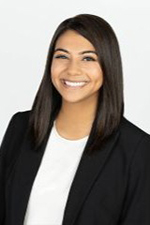
Manasa Brown, MD
MD: Rush Medical College of Rush University Medical Center
Residency: University of Chicago
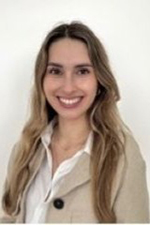
Ariane Paz y Mino, MD
MD: Universidad San Francisco de Quito Colegio de Ciencias de la Salud
Residency: Mass General Brigham Salem Hospital
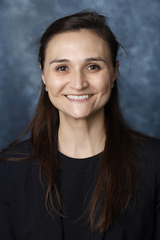
Corinne Thornton, MD
MD: University of Illinois College of Medicine
Residency: Indiana University School of Medicine (Med/Peds)
Second Year
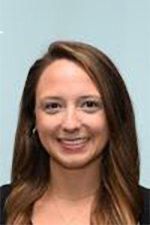
Elizabeth Nagel, MD
MD: University of Illinois College of Medicine
Residency: Indiana University of Missouri (Med/Peds)

Nicholas Au, MD
MD: Rutgers, Robert Wood Johnson Medical School
Residency: University of Missouri
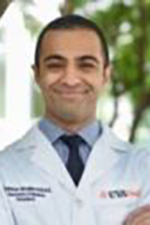
Abdulaziz AlMulhim, MBBS
MD: University of Dammam College of Medicine
Residency: University of Virginia Medical Center
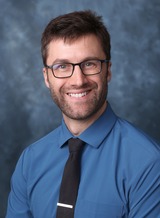
James McCluskey, MD
MD: University of Minnesota Medical School
Residency: University of Nebraska MEdical Center (Med/Peds)
Third Year
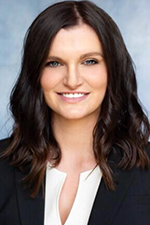
Sarah Hockney, MD
MD: Northwestern University The Feinberg School of Medicine
Residency: Northwestern University
Fourth Year
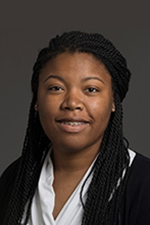
Danielle Grayer, MD, MPH
MD: Indiana University School of Medicine
Residency: Rush University Medical Center (Med/Peds)
More Information
Further program details, including our housestaff manual and a sample training contract, are available on our McGaw Medical Center Graduate Education website. We also recommend reading through our FREIDA listing (program number 146-16-21-059).